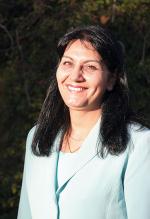Our young refugees focus of new study
 Paediatrics Paediatrics
Dr Tahereh Ziaian from the University of Adelaide is about to undertake the biggest research project of its kind in Australia - and she couldn't be more excited. She is leading a study into the mental health of more than 800 refugee children and adolescents. The children, who will be aged from 4 to 17 and have permanent residency status, will be interviewed in a three-year quantitative and qualitative study, a joint project conducted by the University of Adelaide, the University of South Australia and industry partner, the Migrant Resource Centre of South Australia. The project has been successful in obtaining more than $370,000 in funding from the Australian Research Council (ARC) Linkage Projects Scheme and other sources. Dr Ziaian, who is a Research Fellow in the University's Department of Paediatrics, associated with the Research and Evaluation Unit in the Division of Mental Health at Children, Youth and Women's Health Service, said many years of hard work had gone into the successful ARC bid and this energy could now be transferred to helping to understand the problems faced by young refugees. "I have been interested in issues affecting refugees for many years now, and I just can't wait to get started on this mental health project," she said. "To receive the ARC funding is particularly gratifying, because it shows that the Federal Government takes this issue very seriously and wants to make progress with it." Dr Ziaian said the study will identify the psycho-social status of young refugees as well as culturally appropriate mental health responses to address areas of identified need. This new information will not only bring positive change in the lives of young refugees but also improvements in the service delivery responses of mental health service providers. "Refugees suffer from mental illnesses like the rest of the Australian population but no-one is really sure about the prevalence or type of illnesses they are experiencing," Dr Ziaian said. "A large scale study like this has never been attempted in Australia before so we believe it could make a significant difference to the lives of thousands of young refugees. "We are especially excited because it's not only young refugees and their families who will benefit but also the service providers assisting them. "The study will provide significant data for service providers to develop culturally appropriate and sensitive clinical services, ultimately leading to a reduction in mental health problems and disorders in the Australian community. "It could also potentially assist government policy-makers in their decision-making about refugee mental health issues." The study will focus on young refugees from Asia, Eastern Europe, the Middle East and Africa as these represent 87% of the total number of refugees who have arrived in Australia in the past eight years. The study uses cross-informant information, with parents and school teachers interviewed to help researchers form a more complete picture of the mental health issues and needs of young refugees. Story by Ben Osborne
|





